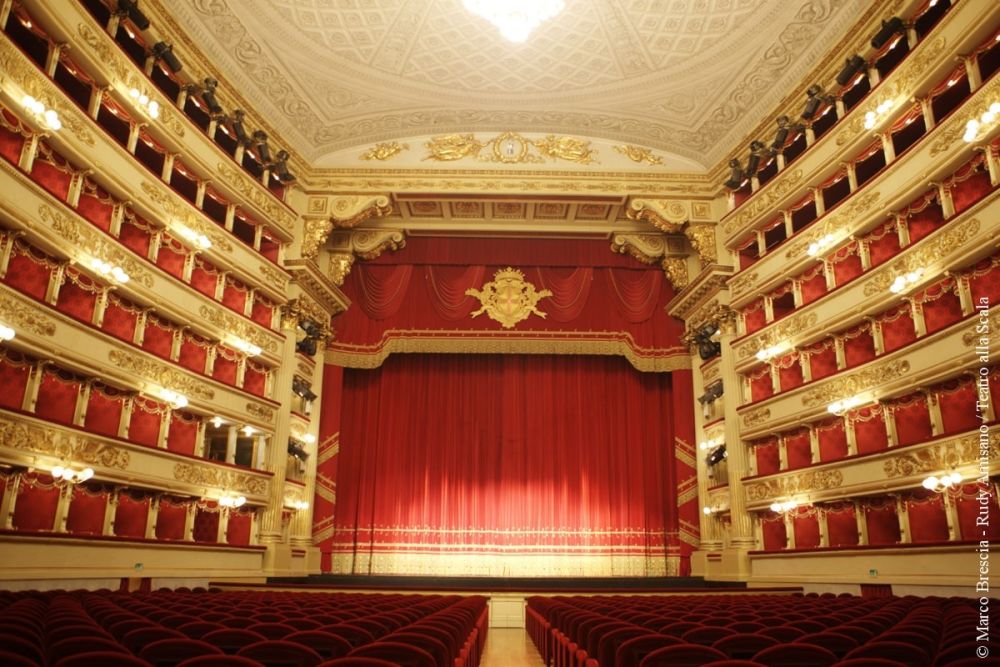

Teatro alla Scala, often known simply as La Scala, is one of the most famous opera houses in the world, located in the heart of Milan, Italy. Its history is deeply intertwined with the stories of great music composers and renowned performers.
The majestic opera house first raised its curtains in 1778 and was originally known as the Nuovo Regio Ducal Teatro alla Scala. The site was previously occupied by the Church of Santa Maria alla Scala, from which the theater draws its name. Built by architect Giuseppe Piermarini in a neoclassical style, La Scala quickly became the meeting point of the cultural and social elite of the time.
Through the 19th and 20th centuries, Teatro alla Scala underlined its prestige by premiering works of monumental composers such as Giuseppe Verdi and Giacomo Puccini. This venerable stage has witnessed the rise of many opera legends, serving as a launchpad for their careers. The fame of La Scala grew internationally, attracting tourists and opera enthusiasts from all around the globe.
La Scala has undergone several restorations, the most extensive being in 2002-2004. The renovation aimed to improve the acoustics, expand the backstage area, and incorporate modern technologies, all while preserving the historic charm of the theater. The restoration was critical in ensuring that La Scala remains a top-notch venue for productions and a symbol of cultural heritage.
As a beacon of high art, Teatro alla Scala has significantly contributed to the cultural tourism in Milan. Visitors come not only to attend performances but also to take guided tours that explore the opulent auditorium, the boxes, the pit, and the remarkable museum that harbors a rich collection of costumes, set designs, and musical instruments.
The allure of La Scala includes the La Scala Theatre Museum, which showcases the history and the inner workings of the theater, further enriching the tourist experience.
In recent years, La Scala has embraced the digital era, offering virtual experiences and high-definition streaming of performances – a feature that became particularly prominent during the global health crisis in the early 2020s. This move expanded its reach far beyond its historic walls, making opera more accessible to international audiences.
In post-pandemic times, La Scala's tourism has started to incorporate more interactive and personalized experiences, with private tours and exclusive behind-the-scenes access. The introduction of augmented reality experiences and immersive exhibitions is a testament to how La Scala blends historical awe with contemporary appeal.
The timeless allure of Teatro alla Scala remains unchanged as it continues to be a defining symbol of Milan’s rich cultural landscape, inviting tourists to immerse themselves in a profound artistic legacy that has been meticulously preserved and adapted to the tastes of modern audiences.